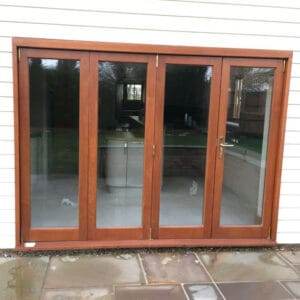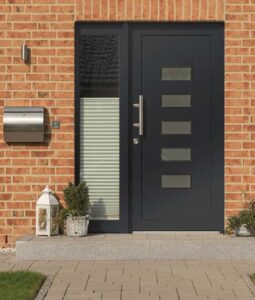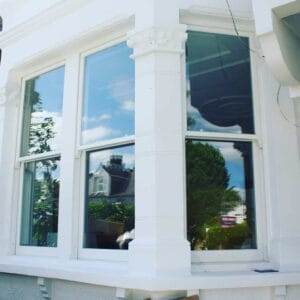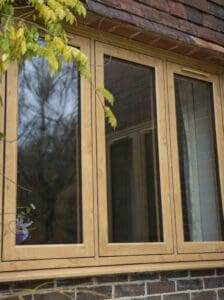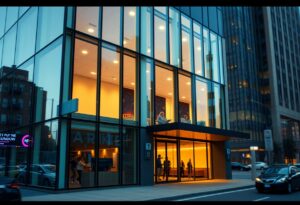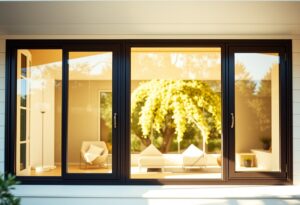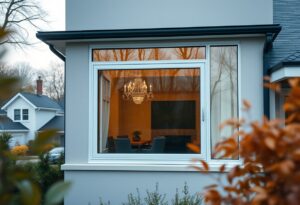Hitherto unexplored by many homeowners, window tinting presents a unique solution to numerous issues commonly faced amidst residential properties. From UV protection to enhanced privacy, the application of window films holds the potential to greatly improve the living environment within your home. However, it is imperative to weigh the pros and cons before investing in this addition to your property. Visit The Pros and Cons of Tinted House Windows to delve deeper into this decision-making process and equip yourself with the necessary knowledge to make an informed choice.
Key Takeaways:
- Energy Saving: Window tinting can help reduce heat coming into your home, lowering the need for air conditioning and ultimately saving on energy costs.
- UV Protection: Tinted windows can block up to 99% of harmful UV rays, protecting your furniture and flooring from fading and damage.
- Privacy and Security: Tinted windows can provide increased privacy and security by reducing visibility into your home from the outside.
- Aesthetics: Window tinting can enhance the overall look of your home, adding a modern and sleek touch to your windows.
- Regulations and Considerations: Before installing window tinting, it’s important to check local regulations and consider factors such as the type of tint and its impact on natural light in your home.
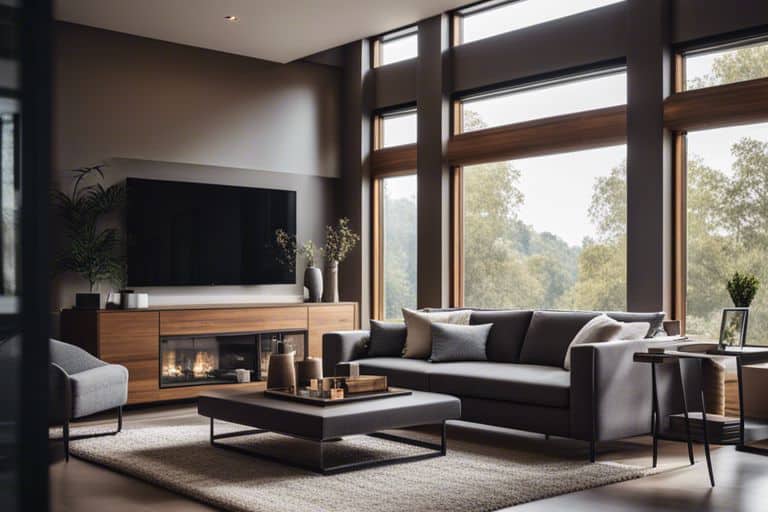
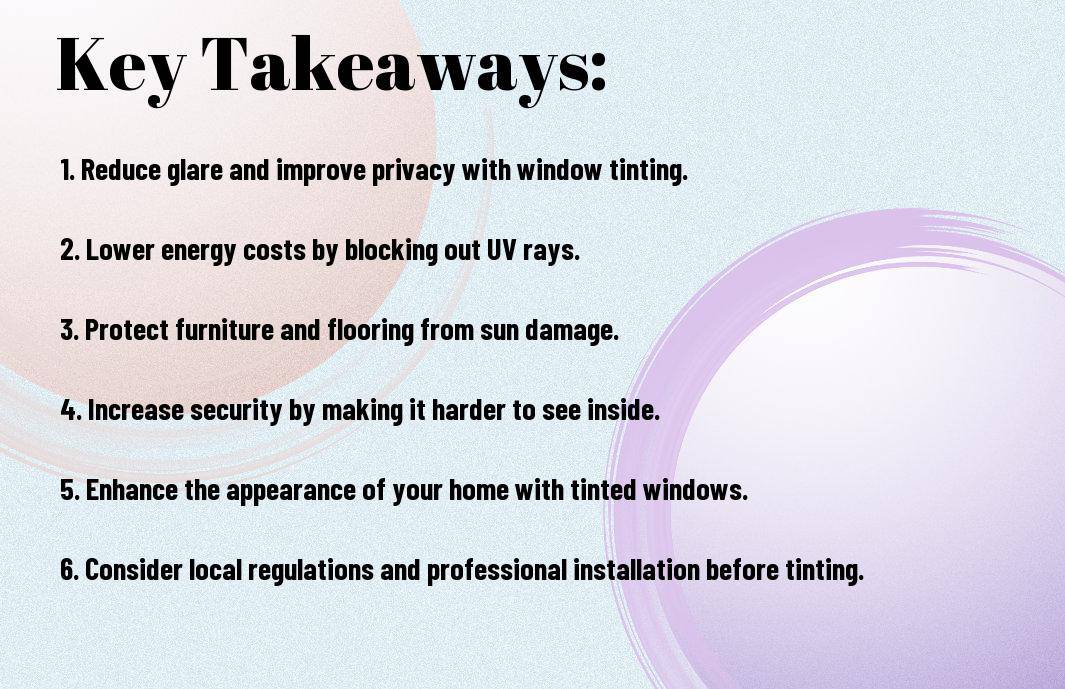
Benefits of Window Tinting for Your Home
Energy Efficiency and Cost Savings
Window tinting can significantly improve the energy efficiency of your home by reducing the amount of heat that enters through the windows during the summer, and by retaining warmth during the winter. This can result in lower energy bills as your heating and cooling systems won’t have to work as hard to maintain a comfortable temperature. In addition, window tinting can help to extend the lifespan of your furniture and flooring by reducing the damage caused by UV rays.
UV Protection and Increased Privacy
One of the key benefits of window tinting is its ability to block up to 99% of harmful UV rays, providing protection for your family and belongings from potential health risks and sun damage. Additionally, window tinting can enhance the privacy of your home by reducing the visibility from the outside, without compromising natural light inside.
With window tinting, you can enjoy a peace of mind knowing that your family is protected from harmful UV rays and that your home offers increased privacy without sacrificing natural light.
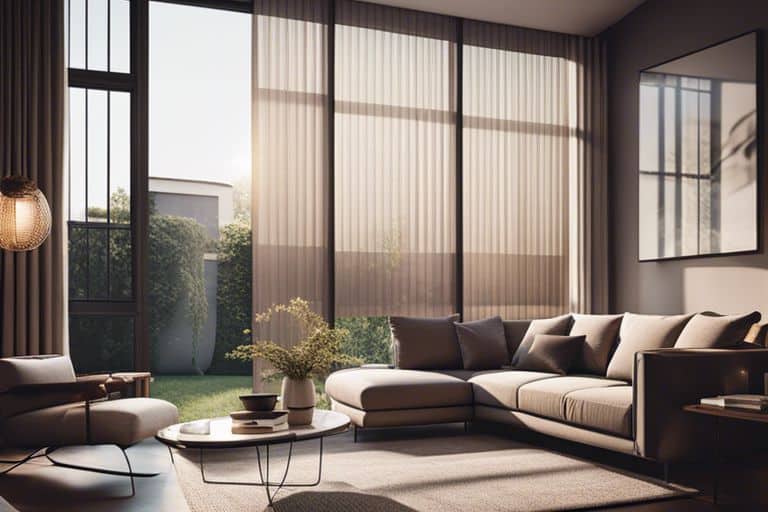
Considerations Before Tinting Your Home Windows
Before you decide to tint the windows of your home, there are several important considerations to keep in mind. From local regulations and legal restrictions to the selection of the right tint material and shade, it’s essential to make well-informed decisions to ensure the best outcome for your home.
Local Regulations and Legal Restrictions
Before proceeding with window tinting for your home, it’s crucial to be aware of the local regulations and legal restrictions in your area. Some regions have specific rules and limitations regarding the darkness of window tint, especially for residential properties. Additionally, there may be restrictions on the types of materials that can be used for window tinting. Failure to comply with these regulations can result in fines and the need to remove the tint, so it’s important to thoroughly research and understand the legal requirements before moving forward.
Selection of the Right Tint Material and Shade
When considering window tinting for your home, the selection of the right tint material and shade is a critical decision. The market offers a variety of tinting options, from reflective to non-reflective, and from light to dark shades. It’s important to consider factors such as the level of privacy desired, UV protection, heat reduction, and aesthetic appeal when choosing the right tint for your home. Additionally, the orientation of your home and the climate of your region should also be taken into account when selecting the appropriate tint material and shade.
Choosing the right tint material and shade for your home can have significant implications for energy efficiency, security, and overall comfort. By selecting the most suitable tint, you can positively impact the interior temperature of your home, reduce glare, and protect your furnishings from UV damage.
The Installation Process
When it comes to window tinting for your home, the installation process is a crucial aspect to consider. Proper installation ensures that the window tint will be effective in providing the desired benefits, such as UV protection and energy efficiency.
DIY versus Professional Installation
While some homeowners may consider DIY installation to save costs, it is important to note that professional installation offers several advantages. Professional installers have the expertise and experience to ensure a precise and seamless application of the window tint. This reduces the risk of air bubbles, creases, and incorrect placement, which can compromise the effectiveness of the tint. Additionally, professional installation often comes with a warranty, providing peace of mind for the longevity of the window tint.
Maintenance and Longevity of Window Tints
Proper maintenance is essential for ensuring the longevity of window tints. Regular cleaning with a non-abrasive cloth and mild detergent can help to preserve the tint and prevent build-up of dirt and grime. Additionally, avoiding the use of harsh cleaning chemicals and abrasive materials is important to prevent damage to the tint.
It is also worth noting that the quality of the window tint and the installation process can greatly impact its longevity. Opting for high-quality window tints and professional installation can result in a longer lifespan and maximum effectiveness in providing UV protection and energy efficiency.
Cost Analysis and Return on Investment
When considering whether to invest in window tinting for your home, it is important to conduct a thorough cost analysis to determine the potential return on investment. To help you make an informed decision, you can read more about the costs and benefits of home window tinting in this blog post on Is Tinting House Window Worth It? Pros & Cons of Tinted…
Estimating the Costs of Home Window Tinting
Estimating the costs of home window tinting involves factoring in the size of your windows, the type of tint you choose, and the expertise of the installation team. It is important to obtain quotes from reputable window tinting companies to ensure you are receiving accurate pricing information. Additionally, consider the potential energy savings and increased comfort that tinted windows can provide, as these benefits can contribute to the overall value of the investment.
It is also essential to consider the potential long-term savings on energy bills and the increased lifespan of your furnishings and flooring due to reduced sun damage. When evaluating the costs of home window tinting, it is important to consider the long-term financial benefits alongside the initial investment.
Evaluating the Long-Term Financial Benefits
When evaluating the long-term financial benefits of home window tinting, it is important to consider the potential energy savings, reduced fading of furnishings, and increased comfort levels within your home. Tinted windows can also enhance the resale value of your property, making it a worthwhile long-term investment. The reduced strain on your HVAC system due to improved insulation from window tinting can result in lower energy bills, further contributing to the cost savings over time.
Additionally, the added privacy and security that tinted windows offer can provide peace of mind and contribute to the overall value of your property. By evaluating the long-term financial benefits, you can make an informed decision about whether window tinting is a good option for your home.
It is essential to consider the potential energy savings, reduced fading of furnishings, and increased comfort levels within your home. Additionally, the added privacy and security that tinted windows offer can provide peace of mind and contribute to the overall value of your property. When evaluating the long-term financial benefits, it is important to consider the potential return on investment and the overall cost savings that tinted windows can provide.
Conclusion: Window Tinting – Is It a Good Option for Your Home?
In conclusion, window tinting can be a beneficial option for your home. It offers various advantages such as UV protection, increased privacy, and energy efficiency. With the ability to reduce glare and lower energy costs, window tinting is a cost-effective solution for residential properties. Additionally, it can also enhance the aesthetic appeal of your home by providing a sleek and modern look. However, it’s important to consider the specific needs of your home and consult with a professional to ensure the right type of window tinting is chosen. Overall, window tinting is a practical and worthwhile investment for any homeowner looking to improve the comfort, safety, and energy efficiency of their living space.
Window Tinting – Is It a Good Option for Your Home?
Q: What is window tinting?
A: Window tinting is the application of a thin film to the surface of a window to reduce the amount of heat and sunlight that enters the building.
Q: What are the benefits of window tinting for homes?
A: Window tinting can reduce energy costs, protect furniture and flooring from sun damage, increase privacy, and improve the overall comfort of the home by reducing glare and heat.
Q: Is window tinting a good option for all types of windows?
A: Window tinting can be applied to most types of windows, including single-pane, double-pane, and tempered glass. However, it is important to consult with a professional to ensure that the chosen film is suitable for the specific window type.
Q: Will window tinting affect the appearance of my home?
A: Window tinting can enhance the appearance of a home by adding a sleek and modern look to the windows. Additionally, it can be chosen in a variety of tints and shades to complement the existing aesthetic of the property.
Q: How long does window tinting typically last?
A: With proper care and maintenance, high-quality window tinting can last for 10-15 years. However, the exact lifespan can vary depending on factors such as the quality of the film, the climate, and the installation method.

